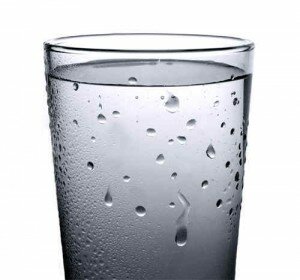6 Tips for Weathering Heat Emergencies
 As a heat wave grips much of the nation, it’s important to remember that sever weather like this is a lot like any other sever weather situation. While most types of severe weather or disaster have little to no warning that they are about to happen, heat waves can be forecasted ahead of time and heat-specific preparations can be made before the worst of the weather hits your area. Here are some tips to help you, and your neighbors, stay cool during some of the hottest parts of the year.
As a heat wave grips much of the nation, it’s important to remember that sever weather like this is a lot like any other sever weather situation. While most types of severe weather or disaster have little to no warning that they are about to happen, heat waves can be forecasted ahead of time and heat-specific preparations can be made before the worst of the weather hits your area. Here are some tips to help you, and your neighbors, stay cool during some of the hottest parts of the year.
 Drink plenty of water. Water helps to keep your body cool, even if it’s not too cool. Even if you’re not thirsty, keep water near you to drink throughout the day. If you feel thirsty, you’re already on your way to being dehydrated. Try to avoid caffeine and alcohol.
Drink plenty of water. Water helps to keep your body cool, even if it’s not too cool. Even if you’re not thirsty, keep water near you to drink throughout the day. If you feel thirsty, you’re already on your way to being dehydrated. Try to avoid caffeine and alcohol.
Slow down. Planning on doing some yard work? Want to go for a run? It’s very important to be aware of the effect that heat has on you. Try to limit outdoor activities to cooler parts of the day – first thing in the morning or in the evening. Children, seniors, and people with respiratory problems should stay in the coolest places they can.
During the hottest part of the day, try to find somewhere with air conditioning. We understand that not everyone has air conditioning in their homes, but when temperatures start peaking over 100 degrees it’s important to try to move somewhere cooler. Your city may have cooling stations set up where people can go to find relief from the heat. Shopping centers, museums, movie theaters, and libraries are all great places to go to get a little bit of relief during the hottest parts of the day.
Try to avoid sunburn. Sunburns reduce your body’s ability to get rid of heat. If you have to be out in the sun, don’t forget your sunscreen and other sun protection.
Know the warning signs of heat exhaustion and heat stroke. Your body cools itself by sweating but if you can’t cool yourself enough the heat can have a serious effect on you. Heat exhaustion occurs when you can’t cool yourself enough even though you’re sweating. You can become dehydrated from water loss through sweating and that can lead to muscle cramps, weakness and nausea. Heat stroke an abnormally high body temperature and can be fatal if not treated quickly. The most important thing to do to a victim of heat stroke is to cool them down. If someone’s body temperature reaches 104 degrees or higher, call 911 and try to cool the person down. The most important measures to prevent heat strokes are to avoid becoming dehydrated and to avoid vigorous physical activities in hot and humid weather. NOAA has description of heat exhaustion and heat stroke on their heat safety page.
Be a good neighbor. Don’t forget to check on your neighbors to make sure they’re staying cool in the extreme heat. This is especially important for elderly neighbors and neighbors that might not have air conditioning. Even if you’ve never talked to your neighbors, just walk over and knock on their door. Let them know that you wanted to make sure they’re ok. Even if you don’t think you have anything to talk about, you can always talk about the weather!
Related links:
- How to Recognize and Treat Heat Emergencies (from the Red Cross)
- 7 Tips for Summertime Projects
- Heat Wave Threatens Older Americans (from AARP)


